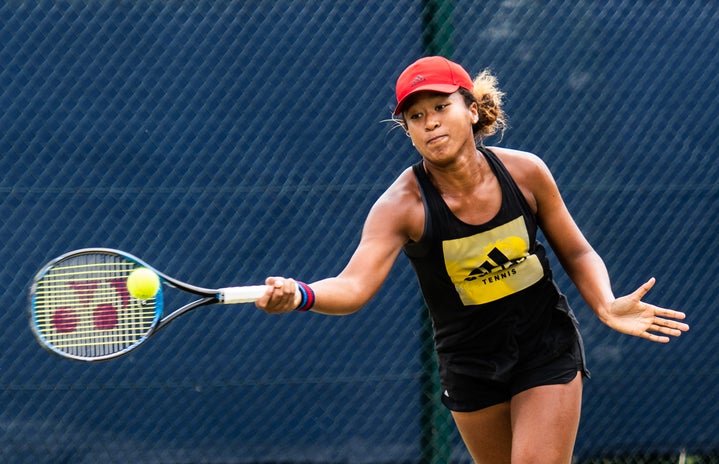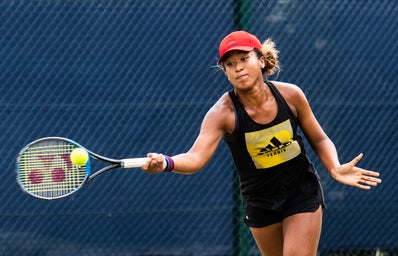“Why are you always playing sports?…That’s not what girls do.”
“Do something more girly.”
“Go inside.”
These are all statements that people—even my own older family members—have said to me. I know they didn’t mean any harm by it; it was the mindset they were raised with. The mindset that separates men from women, the mindset that men and women have different fundamental roles in society, the mindset that creates a barrier between passion and execution.
I am an athlete. I play tennis, table tennis, badminton, basketball and multiple other sports. I spent years of my childhood and teen years making myself immune to insensitive remarks towards women in sports, to not seeing anyone else that looks like me on the courts and to feeling like an outcast. I spent years building up the courage to go to the courts alone, to ask that intimidating group of boys to play with them and to see their eyes widen with shock when I make a basket or hit a winner.
Female athletes like Serena Williams, who has won 23 Grand Slam Titles, or Toni Stone, who was the first woman to play major-league baseball, continue to prove time and time again that women can take sports to new heights. Yet, there still remains a stark deficit in importance given to female sports compared to male sports.
As UNESCO, an organization that promotes ideas of peace and inequality throughout the world says, statistics show that 40% of those participating in sports are women, but only a mere 4% of sports coverage goes towards female sports. This distinct lack of representation illustrates just how little importance women are given in the field, even though they make up a substantial part of it. UNESCO also says that even within that little coverage, women are often depersonalized or degraded, making it an even bigger issue. In an article expressing gender inequality in sports, professional boxer Sarah Thomas says that men’s sports receive more coverage and more money because more people watch them, which fundamentally proves that sports are a just business like other fields. Thomas also says that focus can and should be put more towards women’s sports in the future. Better marketing could definitely lead to better salaries and recognition. And even though female sports in the U.S. and other countries have come far in terms of these ideas of focus and marketing, there is still undoubtedly female underrepresentation in the domain.
The lack of female representation I see in the sports I play is something that I don’t want other young female athletes to face, which is why I continue to advocate for female athletics. Whether it be through increasing funding for female sports at various levels or increasing media coverage of women’s sports, there are many ways to encourage more women to join sports. Female sports ought to be supported just as much as male sports from the school level, empowering young women to achieve greater competitive heights. Sports involve methodological thinking, resilience, self-discipline and motivation: qualities that women can possess and demonstrate just as well as men can.
Women empowerment in sports is critical because it helps the promotion of gender equality in order to maintain stability and prosperity. Successful women in sports have better confidence, body image and self-esteem, which leads to overall mental well-being and better performance in other aspects of life. I find myself performing better in school when I have a good day at the gym. Even those not interested in sports ought to see the greater problem: women are not getting the recognition and praise they deserve when they make great strides in any field. Acknowledging women in sports is one of the first steps to combating this issue because there stands a very stark inequality between the sexes in this field specifically.
As a young girl just entering into sports, my first concern was that I did not see peers that looked like me. However, as I grew up, I realized this issue of lacking representation exists on a much larger scale, and after brushing it off for so many years, I do not want other young girls to be discouraged from pursuing sports solely because of the isolation or abandonment they feel. Imagine how many more Serena Williams’s and Toni Stone’s would be crafted if this world actually acknowledged the strength and prowess women hold and encouraged female athletes to compete at higher levels. I wish to live in such a world, and I know the 10 year old version of me—the one that desperately wanted a teammate that looked like her—would have too.

